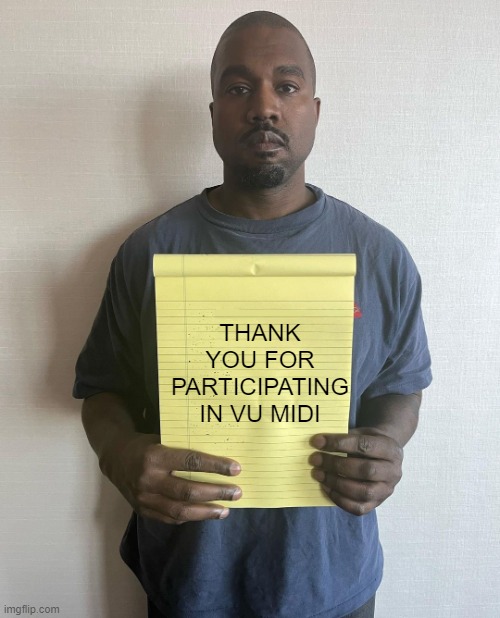Are you interested in our internship opportunities?
Fill out this form!
10 best tips & tricks to prepare for an interview
Alright, listen up, potential job seeker. If you think that preparing for an interview is just a matter of Googling some common interview questions, you're about as prepared as a penguin in a desert. Sure, you should definitely brush up on those common questions, but there's so much more to it than that.
Let's face it - the interview is like a first date. You want to make a good impression, show off your best qualities, and avoid saying anything awkward or embarrassing. And just like a first date, preparation is key! If you don't prepare for a job interview, it's like showing up to a first date without showering, brushing your teeth, or putting on pants. You might have a great personality, but that won't matter if you come across as unprofessional or unprepared.
Just don’t worry! We’ll cover you! twoday team prepared tips & tricks on how to be ready to rock the job market! If you follow these simple steps, you'll be well on your way to interview success. And if not, well, there's always the circus.
OK, but first:

Are you ready? Let’s go!
1. Know what you want.
Sounds easy? Not for everyone. To know the path you want to follow not only helps you as a young specialist but also for organizations you are applying to. We recommend taking your time and thinking about what drives you, and what you’re really passionate about. Maybe you love front-end technologies and a bit hate back-end, or you are more into mobile technologies or QA? Help yourself and try to have a clear path, when it is easier for you to find the right positions to apply and also you can plan what to learn additionally in your free time.
.gif?width=480&height=318&name=giphy%20(3).gif)
2. Unlock your hidden creative genius.
If you do not have any official working experience, and no projects to put on your resume - use your creativity. In your free time, just develop some simple (or super complicated) software, add it to your github and show the world that you are killing it! Real examples of your code is really important, especially if you are just starting your career. More senior developers can take a look at your code and see some potential, so have an idea and just develop it!
.gif?width=250&height=250&name=giphy%20(4).gif)
3. Resume, resume, resume…
Well, everyone has their own opinion about that, but trust us - don’t use Europass template, you’ll thank us later 😉 You can find free resume templates on different platforms, for example: canva.com or just google: “free resume templates” and get crazy. Just joking, don’t get fully crazy. Remember: info on your resume needs to be written clearly, with no grammar mistakes and if you decide to add a photo, please make it look professional, not just cut your friend out and leave his or her hand on your shoulder. Trust us, we’ve seen a lot...
.gif?width=480&height=400&name=giphy%20(5).gif)
4. Create a LinkedIn profile.
LinkedIn is really popular here in Lithuania, so spend some time and make it perfect. You can find a lot of tips on how to be more seen on this platform, also you can start to build your network and invite relevant Developers, Managers and Recruiters to connect. You’ll never know when these contacts can help you or discover you.
.gif?width=320&height=320&name=giphy%20(6).gif)
5. Do your research.
Have a list of potential companies you want to work in. Know the technology stack of the company, what product or projects they are working with. Have an answer for yourself why you want to join this particular company. Because they’ll ask, and you need to be ready to answer this question.
.gif?width=450&height=253&name=giphy%20(7).gif)
6. First impressions matter.
So, you send a bunch of resumes and finally you receive a - YES! Now we need to turn on all the power and start to prepare for the phone screen or the interview. If you receive a phone call but you’re not able to talk or the surroundings are noisy, don’t be afraid to ask to call you later, or say that you need to find a better place to have this call. Bad quality of the call is really frustrating and can leave a bad impression.
.gif?width=480&height=270&name=giphy%20(8).gif)
7. Prepare for an interview.
If you are invited to video call, this is a checklist what you need need to know:
- Test your IT equipment in advance: set up your microphone and camera, test your access to the chat conversation, keep your laptop and headset chargers nearby and choose the software and hardware that will allow you a maximum of features. Please note that using a laptop or a desktop computer is preferable, as not all mobile devices will give you access to all required features (example: access to chat conversation or slides viewing).
- Choose the place carefully. Noisy cafes might be cool on Pinterest, but in reality it is not working so well. You should not be disturbed by external elements during the interview. In addition, let us remind you that the people you’re interacting with will see whatever is behind you, so make sure your background is uncluttered and professional.
- Dress appropriately. The adage that says that “you never have a second chance to make a good first impression” is of course also valid when meeting via video calls. Even if only your face and shoulders are in the frame, you should look professional and clean.
- Be on time (!). As with any traditional meeting, being on time is an absolute standard.
- Pay attention and maintain eye contact. It’s easy for other participants to tell if you aren't fully focused and present during the video call. That is why we recommend to maintain eye contact and to look straight into the camera.

8. Learn about the company.
Before the interview, visit the company website, read all the information and show your knowledge. It’s really nice to know that the person applying to you is really interested about what you are doing and has done some homework about it.
.gif?width=480&height=270&name=giphy%20(11).gif)
9. Let’s be honest.
If you don't know something, be brave to acknowledge that. Showing that you know where you need to improve and that you know your weaknesses shows maturity. And if you’ll try to create answers to the questions… Please don’t do that, just don’t.
.gif?width=600&height=450&name=giphy%20(12).gif)
10. Money talk.
Yes, we know that talking about money can be uncomfortable. But if you’re interviewed for a position with a salary, be prepared to share your expectation when asked. If you’re not sure, again - do the research. Scroll down the job boards and see what salaries companies are offering to the similar role. You already know the salary range of the role you applied for, so have a clear number to share with the hiring team. Also, you can mention that you are flexible and will consider different offers (if you are actually flexible).
.gif?width=480&height=360&name=giphy%20(13).gif)